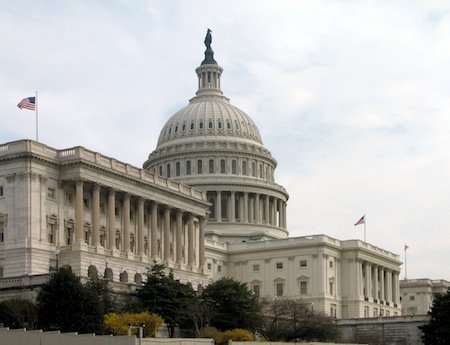Leadership Conference Targets Wireless-Whacking Bill

The smarter way to stay on top of broadcasting and cable industry. Sign up below
You are now subscribed
Your newsletter sign-up was successful
The Leadership Conference on Civil and Human Rights sent a letter to House members Monday asking them to vote against H.R. 5525, the End Taxpayer Funded Cell Phones Act of 2016.
"Passage of H.R. 5525 would undercut both the goals of the Lifeline program and the principles for Lifeline modernization supported by our members and a wide range of other consumer and public interest organizations," the conference said on behalf of its some 200 members.
The bill, which was introduced by Rep. Austin Scott (R-Ga.), would prevent the FCC's Lifeline subsidy from being used for wireless phone or broadband service. It has also been proposed as an amendment to an FCC budget bill, so could get two chances to make it into law.
Related: House E&C Investigating Lifeline Program
Lifeline is the Universal Service Fund subsidy for low-income Americans.
House Majority Leader Kevin McCarthy has scheduled a vote for Tuesday evening on the bill under suspension of the rules, a procedural shortcut that requires a two-thirds majority.
The FCC is migrating the Lifeline phone subsidy to broadband, including mobile broadband, but has gotten pushback from Republicans who argue there is too much waste, fraud and abuse in the program, including in the funding of cell phones.
The smarter way to stay on top of broadcasting and cable industry. Sign up below
"Prohibiting the use of mobile devices in Lifeline would be a counter-productive measure that would reduce the likelihood that low-income people could reestablish financial stability," the conference said in its letter. "As we demonstrated in our comments to the Federal Communications Commission on this matter, it is evident from marketplace choices that mobile services have been a particularly important choice for people of color and low-income people.[1] Moreover, access to mobile services align with important anti-poverty programs."
Related: Lifeline Bills Get More Pushback
The Republican-controlled House Energy & Commerce Committee last month launched an investigation into the Universal Service Fund's Lifeline program following an FCC Notice of Apparent Liability and proposed fine for alleged Lifeline fraud against Total Call Mobile, as well as a letter from Rep. Mike Pompeo (R-Kan.) to the committee asking for the investigation.
The FCC also recently voted on reforms to the Lifeline program that included efforts to rein in waste, fraud and abuse. Though FCC officials have dismissed the suggestion there was anything political or untoward, FCC commissioner Ajit Pai complained about not being able to discuss the Total Call Mobile proposed fine until, conveniently, a day after the FCC's Lifeline vote.
Contributing editor John Eggerton has been an editor and/or writer on media regulation, legislation and policy for over four decades, including covering the FCC, FTC, Congress, the major media trade associations, and the federal courts. In addition to Multichannel News and Broadcasting + Cable, his work has appeared in Radio World, TV Technology, TV Fax, This Week in Consumer Electronics, Variety and the Encyclopedia Britannica.

